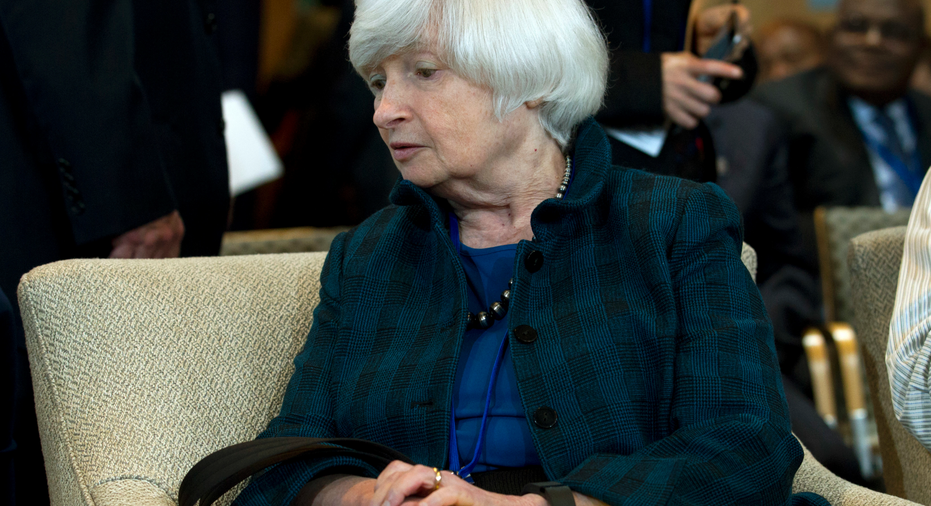Yellen sounds upbeat note on economy and inflation prospects

Federal Reserve Chair Janet Yellen on Sunday sketched a bright outlook for the U.S. economy and for inflation prospects in coming months, saying the impact of the recent hurricanes will likely slow economic growth slightly but only temporarily and should be followed by a rebound by year's end.
Speaking to an international banking seminar, Yellen acknowledged that the persistence of undesirably low inflation this year has been a surprise. But she said she expected inflation to start picking up as the effects of temporary factors, such as falling prices for consumer cellphone service, begin to fade.
The Fed chair's comments suggested that the central bank will soon resume raising interest rates to reflect the strengthening economy. Most economists foresee the next rate hike — the third this year — coming in December.
"Economic activity in the United States has been growing moderately so far this year, and the labor market has continued to strengthen," Yellen said in a speech to a panel that included central bank officials from China, Japan and the European Central Bank.
Of the hurricanes that struck Texas, Florida, Puerto Rico and the Caribbean, Yellen noted that they caused enormous damage. But she added:
"While the effects of the hurricanes on the U.S. economy are quite noticeable in the short term, history suggests that the longer-term effects will be modest and that aggregate economic activity will recover quickly."
Yellen said that the economy's growth, as measured by the gross domestic product, might have slowed slightly in the July-September quarter as a consequence of the hurricanes but that growth is likely rebounding in the current quarter.
The Fed chair's speech Sunday followed the central bank's decision at its meeting last month to leave its benchmark short-term rate unchanged in a range of 1 percent to 1.25 percent. At the same time, the Fed announced that it would begin parings its enormous portfolio of bonds, which it had amassed after the 2008 financial crisis in an effort to hold down long-term loan rates for consumers and businesses. The move to let its balance sheet gradually shrink could mean higher rates on mortgages and other loans over time.
The Fed's decision to leave its key policy rate unchanged had been expected given the uncertainty it has faced over persistently low inflation. Fed officials twice raised rates earlier this year but have since left them alone as they have tried to determine whether the slowdown in inflation has been due to temporary factors or whether something fundamental is keeping inflation consistently below the Fed's target level.
The Fed seeks to manage interest rates to achieve stable prices, which it defines as annual inflation of 2 percent. At the start of the year, Fed officials had thought they were finally on the verge of achieving that target. But inflation began slowing after February. Chronically low inflation can depress economic growth because consumers typically delay purchases when they think prices will stay the same or even decline.
Most economists still think the Fed will raise rates again in December, to reflect the solid job market and a steadily resilient U.S. economy. Others have raised the possibility that the Fed will hold off on any further rate increase unless they see evidence of a pickup in inflation
Yellen's appearance Sunday comes as her future at the central bank is in doubt, with her four-year term as chair ending in February. President Donald Trump has been considering several candidates for the post, in addition to the possibility of offering Yellen a second term. The other candidates include Jerome Powell, a member of the Fed's board; Kevin Warsh, a former member of the board; John Taylor, a Stanford University economist; and Gary Cohn, head of the president's National Economic Council.
Last week, administration officials said Trump is likely to announce his decision with a month.



















